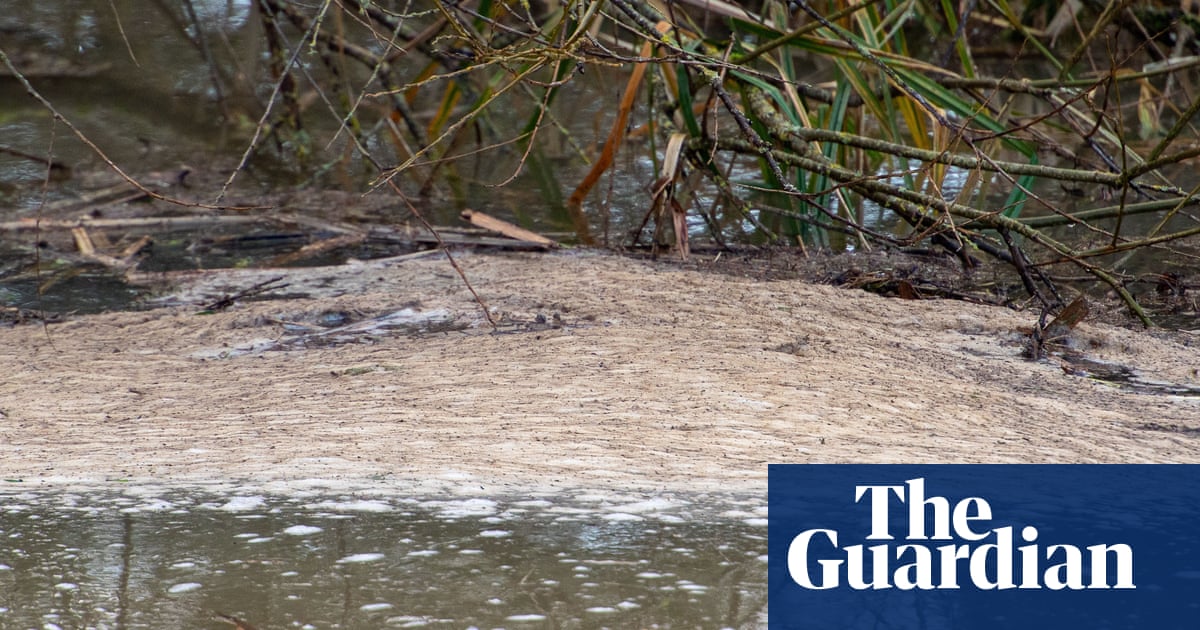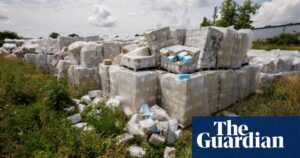
Eighty-three per cent of English rivers contain evidence of high pollution caused by sewage and agricultural waste, according to the largest citizen science water testing project ever to take place in the UK.
Hundreds of anglers took part in the study, organised by the Angling Trust, after being angered by the brown blooms of sewage in the waters they painstakingly tend for the benefit of fish.
A total of 641 fishermen, belonging to 240 fishing groups, actively survey contamination levels in 190 rivers located in 60 catchment areas. Together, they have collected over 3,800 samples, exposing the widespread pollution in England’s waterways. The primary sources of this pollution are agricultural runoff and sewage discharged by water companies.
The fishermen discovered that 83% of the rivers that were observed did not meet the phosphate standards for good ecological health in at least one test, and 44% of the average phosphate levels at the sites failed to meet the standard for good ecological health. These conditions would make it difficult for aquatic life to thrive as phosphates can lead to an overgrowth of algae, which can decrease the amount of oxygen in the river water, suffocating the creatures living within it.
The top phosphate site averages are found in the following mapped catchments: Medway, Swale, Ure, Nidd, Upper Ouse, Severn Middle Worcestershire, Loddon and its tributaries, Wey and its tributaries, Warwickshire Avon, Ribble, Hampshire Avon, Upper Ouse, and Bedford Ouse.
Jamie Cook, the CEO of the Angling Trust, stated that the initial yearly report confirms that rivers nationwide are experiencing excessive levels of phosphate, which has severe consequences for freshwater environments. He emphasized the need for stricter enforcement and revisions to current laws in order to combat the issue of river pollution and hold those responsible accountable.
The Angling Trust will now publish the monitoring results every year, but anglers believe that it should not be the responsibility of volunteers to keep track of the condition of England’s rivers. Reductions in funding for the government’s Environment Agency have led to a decrease in monitoring efforts, according to their argument. They have also expressed frustration over the lack of available information on pollution from the water and agriculture industries.
English government officials are considering deviating from the European Union’s water framework directive, which establishes pollution guidelines for waterways in Europe. This could mean that the WFD will no longer be included in England’s legally binding environmental goals, potentially leading to a decrease in regulation for water quality.
The goals for reducing phosphate pollution in England are not strong enough. According to the current plans, water companies could fulfill environmental objectives by only removing phosphate from their biggest sewage plants that serve large communities and from the lower parts of rivers. This would require the least amount of investment to meet the targets. However, anglers claim that their new data reveals the presence of phosphates in most upstream rivers and those with smaller wastewater treatment facilities.
Stuart Singleton-White, the head of campaigns at the charity, stated that the current laws addressing river pollution are not effective and lack direction on how to make the most impactful reductions in phosphate. It is crucial to have stricter regulations in place to ensure that funding is directed towards areas where it will have the greatest positive impact. Otherwise, polluters may prioritize financial gain over environmental concerns and only meet minimum targets without actually making necessary improvements.
The latest report released by the Office of Environmental Protection indicates that the government’s promise to stop sewage pollution is not being carried out as planned. Our report confirms this. If the next government, regardless of who wins the election, does not take action to address this issue, it would be a betrayal to anglers throughout the nation.
The Department for Environment, Food and Rural Affairs has announced that they are implementing a comprehensive plan to address water pollution in rivers and seas. This plan includes increased funding, stricter regulations, and more rigorous enforcement. As part of these efforts, they will establish ambitious targets that are legally binding to decrease water pollution from agriculture and phosphorous pollution from treated wastewater.
We are actively punishing those who violate the rules, by providing more resources to the industry regulator Ofwat, granting them additional authority, and amending laws to ensure that polluters are subject to unlimited penalties and are held accountable for their actions.
Source: theguardian.com

















